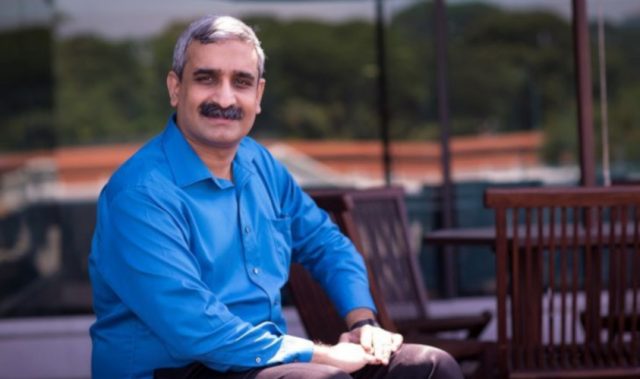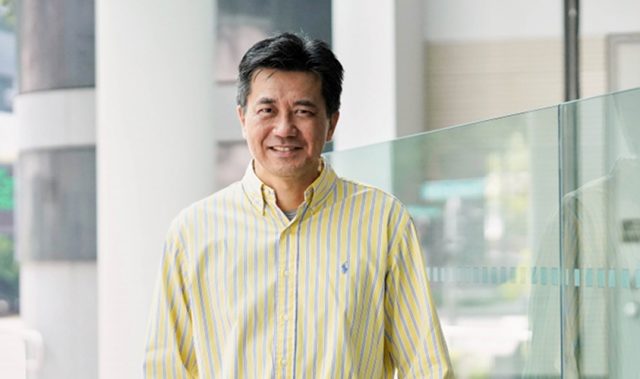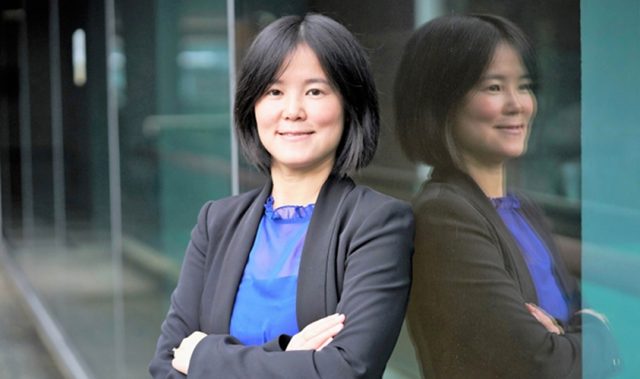
AsianScientist (May. 2, 2014) – By David Tan – Professor David Llewelyn is the Deputy Dean of the Singapore Management University School of Law. An expert in Intellectual Property (IP) law and commercialization, he has more than 30 years of experience practicing, writing and teaching in this field.
“My work varies widely from writing articles on the practice, to reviewing and commenting on cases, and suggesting how the law might develop. For example, I have examined the use of expert evidence in patent, copyright and trademark court cases in Singapore, Australia and the United Kingdom (UK),” explains Professor Llewelyn of his current research.
He writes for an audience of law practitioners and policy makers about issues such as whether a particular court decision is disputable, and if so, what could be done about it.
He describes the recent trademark registration case of Park Regis versus St. Regis. The Australia-based StayWell Hospitality Group, which owns the Park Regis trademark, had applied to register its trademark in Singapore. This was opposed by US-based Starwood Hotels & Resorts Worldwide, which owns the similar-sounding trademark, St. Regis. The Intellectual Property Office of Singapore first ruled that Park Regis could be registered; however, the High Court overruled this decision.
Professor Llewelyn thought that certain aspects of the High Court’s decision were wrong. He published an article in the Singapore Academy of Law Journal which analysed the case, bringing in cases from the European Court of Justice and from the UK to explain his opinion. In the end, the Court of Appeal denied the Park Regis trademark registration, and in its final judgement, quoted from Professor Llewelyn’s article in support of its decision. Having articles cited in court decisions, he explains, is one important way that law academics can influence the development of law.
Advising policy makers and businesses on IP law
In addition to contributing to debates around court decisions, his work also helps policy makers.
“Singapore has introduced a trademark law that is based primarily on European Union (EU) law, with a few domestic tweaks. But it is not a member of the EU, so it need not be bound by decisions of the European Court of Justice. I look at best practices being developed by courts and similar laws around the world that Singapore could adopt,” he says.
Another part of Professor Llewelyn’s work is advising businesses.
He says: “I also look at how businesses can use IP rights as assets or a way of securing a competitive position, and develop IP strategies that anticipate problems and deal with them before they arise.”
One high-profile example, he describes, was the case of Creative Technology, a local technology firm that wanted to break into the United States (US) market with its product Soundblaster, but found that another party had already obtained a patent there.
A key issue in the field is that each jurisdiction needs to be considered separately, Professor Llewelyn explains. “From a business point of view, one of the problems is that every country is different. Although Singapore has state-of-the-art laws and a very effective system to protect IP rights, it is only a small country. What somebody here might say about, for example, patent infringement in China is irrelevant. Just because somebody might be based here doesn’t mean that the value of their IP rights lies here,” he says.
Developing intellectual property strategies in China
Professor Llewelyn is currently working on a project with a collaborator from the University of Cambridge, UK, about navigating the IP minefield in China.
He says: “We are advising businesses on how they might take steps to reduce the chance of IP leakage. We’re looking at examples, both public and the ones we’ve come across personally as case studies.”
He explains that effective strategies are complex and include, for example, looking at agreements and the structure of joint ventures, to put in place provisions in agreements to keep secure the ‘black-box’ in technology.
When asked about how he envisages the IP system in China will develop, Professor Llewelyn says that IP laws would probably stay the same but its practice may be expected to change.
“China has advanced IP laws, among the most advanced in the world. The issue lies in the practice and implementation of these laws.” He believes this is what distinguishes Singapore from other Asian countries. “Singapore has a clean and efficient court system and rule of law,” he says.
The ‘KPI syndrome’
Turning again to patents, Professor Llewelyn discusses the issue of Technology Transfer Offices (TTOs) around the world holding large portfolios of patents that lack commercial attractiveness – a phenomenon that is partly driven by the focus on number of patents filed as a key performance indicator (KPI).
“The ‘KPI syndrome’ is a particular problem in the patent field. There needs to be more critical evaluation as to whether a particular invention is worth the sum invested to get effective patent protection. But critical evaluation requires significant investment in third-party expert fees, which many institutions are not interested in spending even though it would save them money in the longer run,” he observes.
“If you look at the research, you’ll find that very few TTOs around the world actually make money. The vast majority are not value-adding. In some countries, having a TTO is viewed as something that an institution must have in order to be viewed seriously in terms of innovation,” he says.
Professor Llewelyn collaborated last year with Professor Srinivas Reddy, Associate Dean at SMU’s Lee Kong Chian School of Business, to write about the business implications of a case in the Indian Supreme Court. The case had denied a patent application by pharmaceutical giant Novartis for its cancer treatment drug Glivec.
“That caused a huge international ruckus, with the US Government putting a lot of pressure on India to change its law in favor of its research-based pharmaceutical industry,” explains Professor Llewelyn.
Meanwhile, Professor Llewelyn and Professor Reddy noted that India should have access to cheaper generic alternatives for lifesaving drugs, and that the pricing strategies of research-based pharmaceuticals need “to be re-evaluated for emerging markets; taking into account affordability, limited access to health insurance and government safety nets, different marketing and distribution networks, and the powerful generics lobby.”
With a career spanning more than three decades, Professor Llewelyn is clearly a highly respected and much sought-after expert on IP rights and their commercialisation. This is a field that can only grow in importance in Asia in the coming years.
Asian Scientist Magazine is a media partner of the Singapore Management University Office of Research.
——-
Copyright: SMU Office of Research. Read the original article here; Photo: Cyril Ng.
Disclaimer: This article does not necessarily reflect the views of AsianScientist or its staff.












